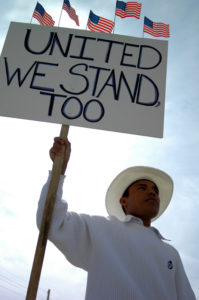Would You Die on the Hill of Purity?

When I was a kid, Proctor and Gamble was still running TV ads claiming Ivory Soap was “99 and 44/00 percent pure.” (Digression: Here’s a link to a quick, fun article on the origins of this marketing slogan, which dates back to 1881.) Even back then, I found this absurd–because I already understood that even just over half a percentage point of impurity meant it wasn’t pure at all. It was actually pretty contaminated. After all, sewage is 99 percent water–and I don’t know anyone who would want a glass of that.
In daily living, 100% purity is a rare thing indeed. In science and in business, we’re often very appropriately guided by the slogan, “Don’t let the perfect be the enemy of the good.”
A typical process would be:
- Design.
- Test.
- Debug.
- Redesign.
- Ship.
- Receive user feedback and debug, then iterate again.
That process works far better than holding out for an illusory perfection that can’t even exist until real-world conditions show us the flaw. So why do we demand it in our politics? I read a New York Times article this morning about a controversy over naming one of its telescopes for 50s-60s-era NASA head James Webb because he may or may not have been homophobic. The article makes it abundantly clear that whether he was or not is a matter of debate–but he was clearly antiracist at a time when that was far from popular, and provided many career opportunities for people of color. It also reminds us that homophobia was the official policy of the US government at that time.
We humans are an evolving species. The LGBT movement as it existed in that era was mostly quiet, clandestine, and not in the mainstream consciousness. The Stonewall Riots, considered the birth of the modern LGBT movement, didn’t take place until 1969. I was very active in that movement from 1973 through 1986 and remain supportive of its goals. But I dont think we should fault Mr. Webb for not being an out-front visionary advocate of LGBT liberation at a time when gays, lesbians, bisexuals, and trans people were ridiculed or assaulted if they entered the mainstream consciousness at all. Rather we should take pride that as a society, we’ve grown to accept that LGBT folks are entitled to civil rights, to choose their families, and even to marry. When I attended my first same-sex weddings in the late 1970s, I never imagined that legal same-sex marriage would be achieved in my lifetime, let alone in less than 40 years–less than 30 in my own state of Massachusetts.
And for the most part I don’t fault our politicians when they compromise on other issues to get some good things passed into law, as long as they come away with significant progress. (I do get tired of the Democrats’ frequent and problematic tendency to negotiate away far more than they have to to try to get bipartisan support that is usually not forthcoming–but once that fails, they don’t go back to the original stronger versions. This is what Obama did with the ACA, and whatBiden has done on issues like immigration and climate.)
When we pass a week or insufficient law, we have to recognize that we will have the next iteration and the one after that–and we can work to strengthen our hand. Change is more often gradual than sweeping. Even the loathsome Bill Clinton-era “don’t ask, don’t tell” policy about gays in the military was a huge improvement over the dishonorable discharges and possible prison terms that were official policy before that change–though I’m very glad to see it go away, and to see the Respect for Marriage Act become law just six days ago. (Another digression: here’s an academic essay from the quite recent past–2021–arguing that don’t ask, don’t tell” should be overturned. Warning: it looks like it might be a term paper mill site.)

